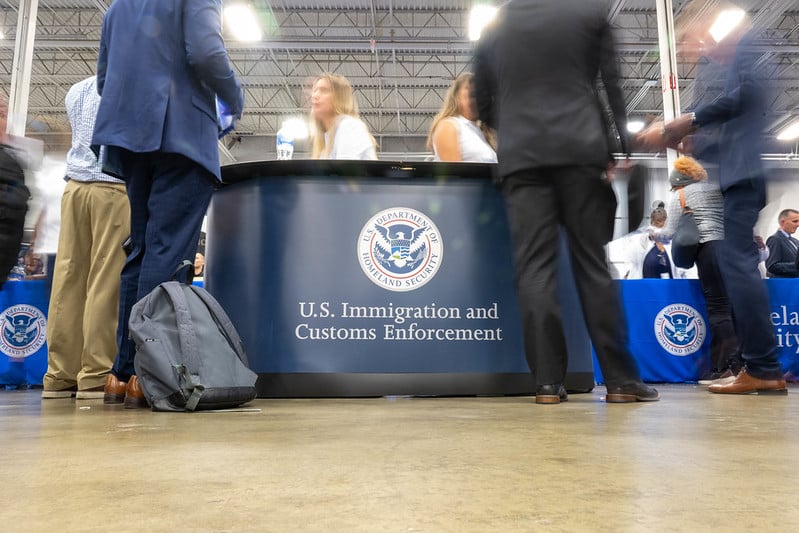DACA recipients across the United States 🇺🇸 remain protected from deportation and continue to receive work authorization as of August 2025, despite recent rumors and confusion about their legal status. The Department of Homeland Security (DHS) has not issued any directive classifying DACA recipients as “illegal aliens” or instructing them to self-deport. Instead, DHS and U.S. Citizenship and Immigration Services (USCIS) continue to process DACA renewals and related work permits nationwide, including in Texas.
Ongoing Legal and Policy Developments

The most recent legal development affecting DACA recipients occurred on January 17, 2025. On that day, the Fifth Circuit Court of Appeals ruled that the Biden Administration’s 2022 DACA regulation was unlawful. However, the court allowed current DACA protections and work authorizations to continue for now. The case was sent back to a lower court to decide on the timeline and process for any future changes, especially concerning work authorization in Texas.
This ruling has created uncertainty for many DACA recipients, but it is important to note that no immediate changes have taken place. As of August 2025, DACA recipients still have the right to live and work in the United States 🇺🇸 under the existing program rules. According to analysis by VisaVerge.com, the court’s decision does not affect current DACA holders’ protections or their ability to renew their status at this time.
No Self-Deportation Directive from DHS
Despite some misleading reports and rumors, there is no official policy or guidance from the Department of Homeland Security or USCIS in 2025 that instructs DACA recipients to self-deport. Both agencies have made it clear that DACA recipients are not being reclassified as “illegal aliens,” nor are they being told to leave the United States 🇺🇸 voluntarily.
USCIS continues to accept and process DACA renewal requests and employment authorization applications nationwide. While initial DACA applications are accepted, they are not being processed at this time. This means that people who already have DACA can keep renewing their status, but new applicants cannot move forward in the process until further notice.
What DACA Recipients Need to Know Right Now
- DACA renewals are still being processed: If you are a current DACA recipient, you can and should continue to submit your renewal application before your status expires. This helps you maintain your protection from deportation and your work authorization.
- No requirement to self-deport: There is no official instruction from DHS or USCIS telling DACA recipients to leave the country. You do not need to take any action to leave the United States 🇺🇸 unless you choose to do so for personal reasons.
- Stay informed: Because the legal situation is changing, it is important to keep up with official updates from USCIS and DHS. You can find the latest information about DACA on the official USCIS DACA page.
- Employment authorization: DACA recipients can continue to apply for and renew their work permits using Form I-765, Application for Employment Authorization. This form allows you to legally work in the United States 🇺🇸 while your DACA status is active.
Background: What is DACA?
The Deferred Action for Childhood Arrivals (DACA) program was created in 2012 to protect certain young people who came to the United States 🇺🇸 as children from deportation. DACA recipients, often called “Dreamers,” are given temporary protection from removal and are allowed to work legally in the country. The program does not provide a path to permanent residency or citizenship, but it has helped hundreds of thousands of people build their lives in the United States 🇺🇸.
Over the years, DACA has faced many legal and political challenges. Courts have issued different rulings about the program’s future, and Congress has not passed a permanent solution for Dreamers. This has left many DACA recipients in a state of uncertainty, unsure about what will happen next.
Recent Court Ruling and Its Impact
The January 2025 ruling by the Fifth Circuit Court of Appeals is the latest in a long line of legal battles over DACA. The court found that the Biden Administration’s 2022 regulation was unlawful but did not order an immediate end to DACA protections. Instead, the case was sent back to a lower court to decide how and when any changes should be made.
This means that, for now, DACA recipients can continue to renew their status and work permits. However, the future of the program remains uncertain, and further court decisions could change the situation. It is important for DACA recipients and their families to stay informed and be prepared for possible changes.
No Change in Legal Classification
Some reports have suggested that DACA recipients are now being called “illegal aliens” by the Department of Homeland Security. This is not true. DHS has not changed the legal classification of DACA recipients in 2025. People with DACA remain protected from deportation and are not being targeted for removal.
USCIS and DHS have not issued any statements or policies telling DACA recipients to self-deport. If you hear rumors or see news stories claiming otherwise, check the information against official government sources or speak with a trusted immigration attorney.
Practical Tips for DACA Recipients
- Renew early: Submit your DACA renewal application at least 120 to 150 days before your current status expires. This gives USCIS enough time to process your request and helps prevent gaps in your protection or work authorization.
- Keep your documents up to date: Make sure your address and contact information are current with USCIS. This ensures you receive important notices about your case.
- Consult a legal expert: If you have questions about your status or are worried about your future, talk to a qualified immigration attorney or a trusted legal aid organization.
- Avoid scams: Be careful of anyone who promises to “fix” your status or asks for large sums of money to speed up your case. Only use official government forms and trusted legal help.
Implications for Families and Communities
The ongoing uncertainty around DACA affects not only recipients but also their families, employers, and communities. Many DACA recipients have lived in the United States 🇺🇸 for most of their lives, attended school here, and built careers and families. The possibility of losing DACA protections creates stress and fear for many people.
Employers who rely on DACA recipients as workers may also face challenges if the program changes. Schools and community organizations continue to support Dreamers and advocate for a permanent solution.
Looking Ahead: What Comes Next?
While the legal process continues, DACA recipients should focus on renewing their status and staying informed. Congress still has the power to pass a law that would give Dreamers permanent protection and a path to citizenship. Until then, the Department of Homeland Security and USCIS will keep following current policies.
For the most accurate and up-to-date information, visit the official USCIS DACA page. Staying connected to trusted sources and legal experts can help DACA recipients make the best decisions for themselves and their families.
This Article in a Nutshell













